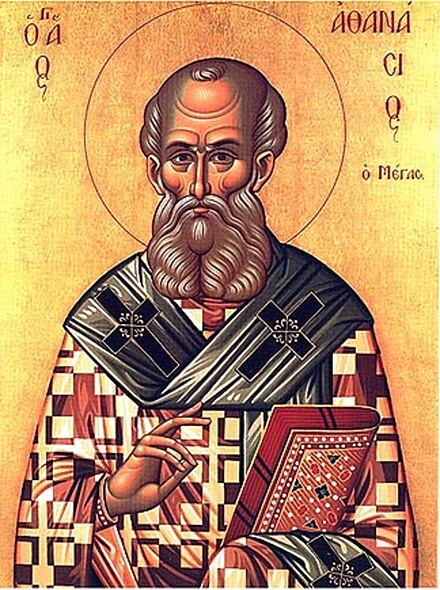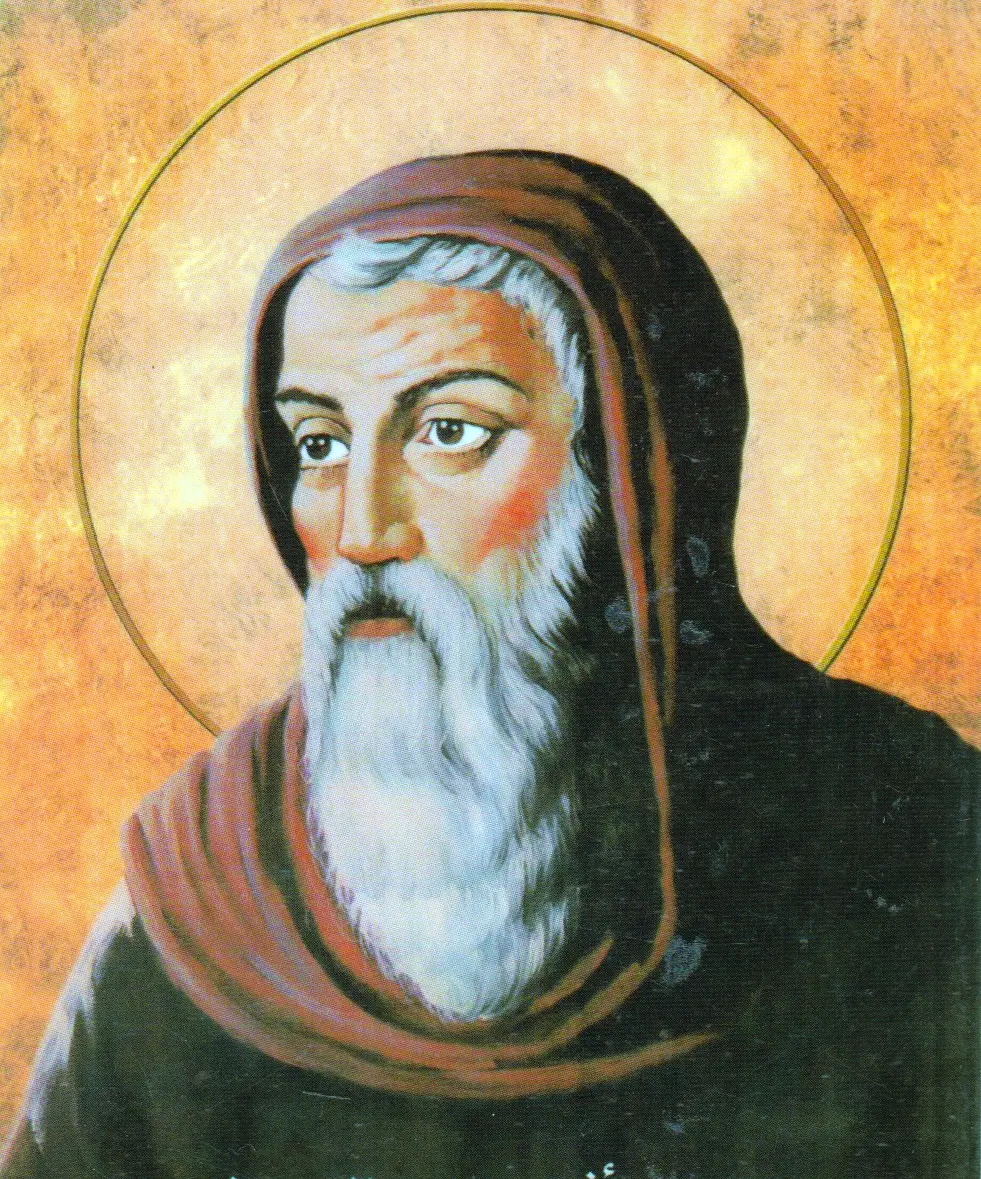
Catholic Saints
Saint Athanasius (c. 296–373 AD), revered as the "Father of Orthodoxy," was a towering figure in early Christianity, serving as the bishop of Alexandria during one of the Church’s most tumultuous periods. Born in the vibrant city of Alexandria, Egypt, he emerged as a staunch defender of the Nicene faith, opposing the widespread Arian heresy that denied Christ’s full divinity. His critical role at the First Council of Nicaea in 325 AD helped establish the foundational doctrine of the Trinity. Despite enduring five exiles totaling 17 years due to his uncompromising stance, Athanasius’s resilience and theological brilliance shone through in works like On the Incarnation, which remain essential to Christian theology. His life was marked by a relentless commitment to truth, earning him a lasting legacy as a Doctor of the Church. His feast day is celebrated on May 2, a testament to his enduring influence.
His feast day is celebrated on May 2.
Defender of the Faith
Born around 296 AD in Alexandria, Egypt, Saint Athanasius emerged as a pivotal figure in Christian history, dedicating his life to upholding the divinity of Christ against the rising tide of Arianism. His unyielding resolve and intellectual prowess made him a cornerstone of orthodoxy, shaping the Church’s theological foundation during a time of profound division and uncertainty.
Athanasius was born into a devout Christian family in Alexandria, a bustling intellectual and cultural center of the ancient world. Raised amidst a vibrant Christian community, he was immersed in the teachings of scripture and the traditions of the Church from an early age. As a young deacon, he served under Bishop Alexander of Alexandria, a mentor who recognized his exceptional gifts. In 325 AD, Athanasius accompanied Alexander to the First Council of Nicaea, a landmark gathering convened by Emperor Constantine to address the Arian controversy. Though still in his twenties, Athanasius’s keen theological insight and eloquence left a lasting impression, contributing to the formulation of the Nicene Creed, which affirmed Christ’s co-eternity with the Father.
His formative years were marked by a deep engagement with both scripture and the Hellenistic philosophical traditions prevalent in Alexandria. This dual education honed his resolute character and sharpened his intellect, preparing him for the monumental challenges ahead. His early experiences at Nicaea ignited a lifelong passion for defending the orthodox understanding of Christ’s divinity, a mission that would define his legacy.
Athanasius’s education and unwavering faith equipped him to confront Arianism, one of the most formidable heresies in Church history. The Arians, led by the presbyter Arius, argued that Christ was a created being, subordinate to the Father, a view that threatened the core of Christian belief in the Trinity. Drawing on his deep knowledge of scripture and his rhetorical skill, Athanasius emerged as a formidable opponent to this doctrine. His early writings, including treatises against Arianism, demonstrated a remarkable ability to articulate complex theological concepts in a way that resonated with both clergy and laity, laying the groundwork for his later, more celebrated works.
In 328 AD, at the age of about 32, Athanasius was elected bishop of Alexandria following Alexander’s death. His appointment thrust him into a maelstrom of conflict, as Arian factions, supported by influential figures in the imperial court, sought to undermine the Nicene faith. Almost immediately, Athanasius faced fierce opposition, including false accusations of misconduct and political intrigue orchestrated by his enemies. Over the next 17 years, he endured five exiles imposed by emperors swayed by Arian sympathizers—Constantine, Constantius II, and Julian the Apostate. These periods of banishment took him to diverse regions, including Trier, Rome, and the deserts of Egypt, where he found refuge among monks and continued his work.
Despite the hardships, Athanasius remained steadfast, using his time in exile to write, preach, and rally support for orthodoxy. His resilience in the face of relentless persecution earned him the enduring epithet Athanasius contra mundum—Athanasius against the world—a testament to his solitary stand against a seemingly overwhelming tide of heresy and political pressure.
Athanasius’s leadership was crucial in preserving the Church’s core doctrine during this crisis. His unwavering commitment to the Nicene Creed, which declared Christ "begotten, not made, consubstantial with the Father," provided a bulwark against Arianism’s spread. During his exiles, he forged alliances with Western bishops, particularly in Rome, gaining papal support that bolstered his position. His writings from this period, circulated widely among the faithful, reinforced the orthodox position and inspired resistance to Arian dominance, ensuring that the Church remained anchored in its foundational beliefs despite the chaos of the time.
Athanasius’s On the Incarnation, written early in his career, stands as a theological masterpiece, arguing persuasively that Christ’s divinity was essential for humanity’s redemption from sin and death. This work, paired with his Against the Arians, systematically dismantled Arian arguments, emphasizing the unity of the Father and Son in essence and purpose. Additionally, he played a pioneering role in shaping the biblical canon, compiling one of the earliest known lists of the 27 New Testament books in his 39th Festal Letter of 367 AD, a contribution that standardized Christian scripture for centuries to come.
His writings not only clarified the co-equality of the Father and Son but also laid the groundwork for the Church’s broader Trinitarian theology, influencing subsequent councils and thinkers. Athanasius’s ability to blend profound theological insight with pastoral concern made his works enduring treasures, still studied and revered in Christian scholarship today.
Athanasius’s theological contributions form a bedrock of Christian thought, earning him the prestigious title of Doctor of the Church. His clarity in articulating the mystery of the Incarnation and his defense of the Trinity provided a framework that guided the Church through centuries of doctrinal development. His influence extended beyond his lifetime, shaping the teachings of later theologians like Augustine and cementing his reputation as one of Christianity’s most brilliant minds.
After his fifth and final exile ended in 366 AD under Emperor Valens, Athanasius returned to Alexandria, where he spent his remaining years fortifying the Church he had fought so hard to protect. He focused on rebuilding the orthodox community, ordaining bishops loyal to the Nicene faith, and writing pastoral letters that offered guidance and encouragement to his flock. His death in 373 AD marked the end of a remarkable life, but not the end of his influence. Athanasius’s legacy endures as a powerful symbol of steadfast faith in the face of adversity, a beacon for those who value truth over expediency.
Celebrated on May 2, he is universally revered as the "Father of Orthodoxy," a title that encapsulates his pivotal role in safeguarding the Church’s doctrinal integrity during one of its darkest hours.
Athanasius’s courage, intellectual rigor, and unwavering clarity continue to inspire the faithful across generations. His life stands as a testament to the power of conviction, demonstrating how one individual, armed with faith and reason, can alter the course of history. His writings and example remain a guiding light for Christians seeking to navigate the complexities of belief in a world often hostile to truth.
“The Word became flesh so that we might become partakers of the divine nature.”
Born in Alexandria, Egypt.
Raised in a Christian family, educated in Alexandria.
Attended as a deacon, shaping the Nicene Creed.
Key participant in Nicaea.
Became bishop of Alexandria.
Faced immediate opposition from Arians.
Endured five exiles over 17 years for his faith.
Multiple exiles.
Died in Alexandria.
Left an enduring mark as Father of Orthodoxy.

“He, the Life of all, our Lord and Saviour, did not arrange the manner of his own death lest He should seem to be afraid of some other kind. No. He accepted and bore upon the cross a death inflicted by others, and those other His special enemies, a death which to them was supremely terrible and by no means to be faced; and He did this in order that, by destroying even this death, He might Himself be believed to be the Life, and the power of death be recognised as finally annulled. A marvellous and mighty paradox has thus occurred, for the death which they thought to inflict on Him as dishonour and disgrace has become the glorious monument to death's defeat.”
Saint Athanasius of Alexandria Quotes
“He became man that we might become divine.”
“The Son of God became man so that the sons of men might become sons of God.”
“For He was made man that we might be made God.”
“What was not assumed by Him was not healed.”
“The Word of God came in His own Person, because it was He alone who could recreate all things.”
“He took what is ours, that He might impart what is His.”